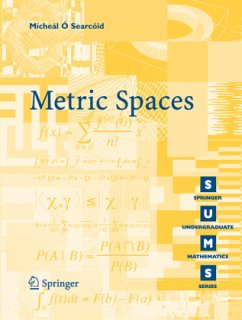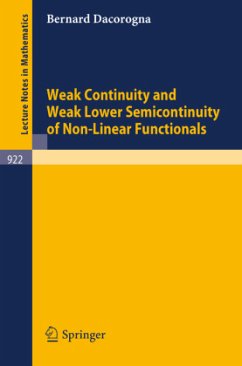
Modulus of continuity
Versandkostenfrei!
Versandfertig in 6-10 Tagen
23,99 €
inkl. MwSt.

PAYBACK Punkte
12 °P sammeln!
High Quality Content by WIKIPEDIA articles! In mathematical analysis, a modulus of continuity is a function omega:[0,infty]to[0,infty] used to measure quantitatively the uniform continuity of functions. So, a function f:ItoR admits as a modulus of continuity if and only if f(x)-f(y) leqomega( x-y ), for all x and y in the domain of f. Since moduli of continuity are required to be infinitesimal at 0, a function turns out to be uniformly continuous if and only if it admits a modulus of continuity. Moreover, relevance to the notion is given by the fact that sets of functions sharing the same modu...
High Quality Content by WIKIPEDIA articles! In mathematical analysis, a modulus of continuity is a function omega:[0,infty]to[0,infty] used to measure quantitatively the uniform continuity of functions. So, a function f:ItoR admits as a modulus of continuity if and only if f(x)-f(y) leqomega( x-y ), for all x and y in the domain of f. Since moduli of continuity are required to be infinitesimal at 0, a function turns out to be uniformly continuous if and only if it admits a modulus of continuity. Moreover, relevance to the notion is given by the fact that sets of functions sharing the same modulus of continuity are exactly equicontinuous families. For instance, the modulus (t): = kt describes the k-Lipschitz functions, the moduli (t): = kt describe the Hölder continuity, the modulus omega(t):=kt,(log(1/t)+1) describe the almost Lipschitz class, and so on. In general, the role of is to fix some explicit functional dependence of from in the ( , ) definition of uniform continuity.












